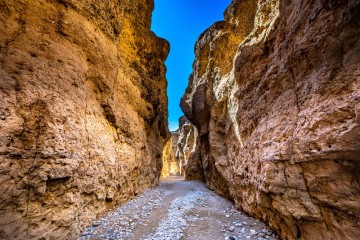
Magical Southern Namibia: Self Drive
Explore the entirety of southern Namibia on this epic road trip, from the Kalahari Desert to the second-largest canyon on Earth.
Thinking about exploring Namibia on your own terms? A self-drive holiday through this vast and breathtaking country is hands down one of the best ways to experience its diverse landscapes, wildlife, and rich culture. Cruise along open roads at your own pace, soak up the beauty of endless horizons, stumble upon hidden gems, and spot wildlife from your car window.
A self-drive holiday and safari in Namibia is the adventure of a lifetime: just you, your favourite travel companions, freedom and independence—in an astonishingly beautiful country.
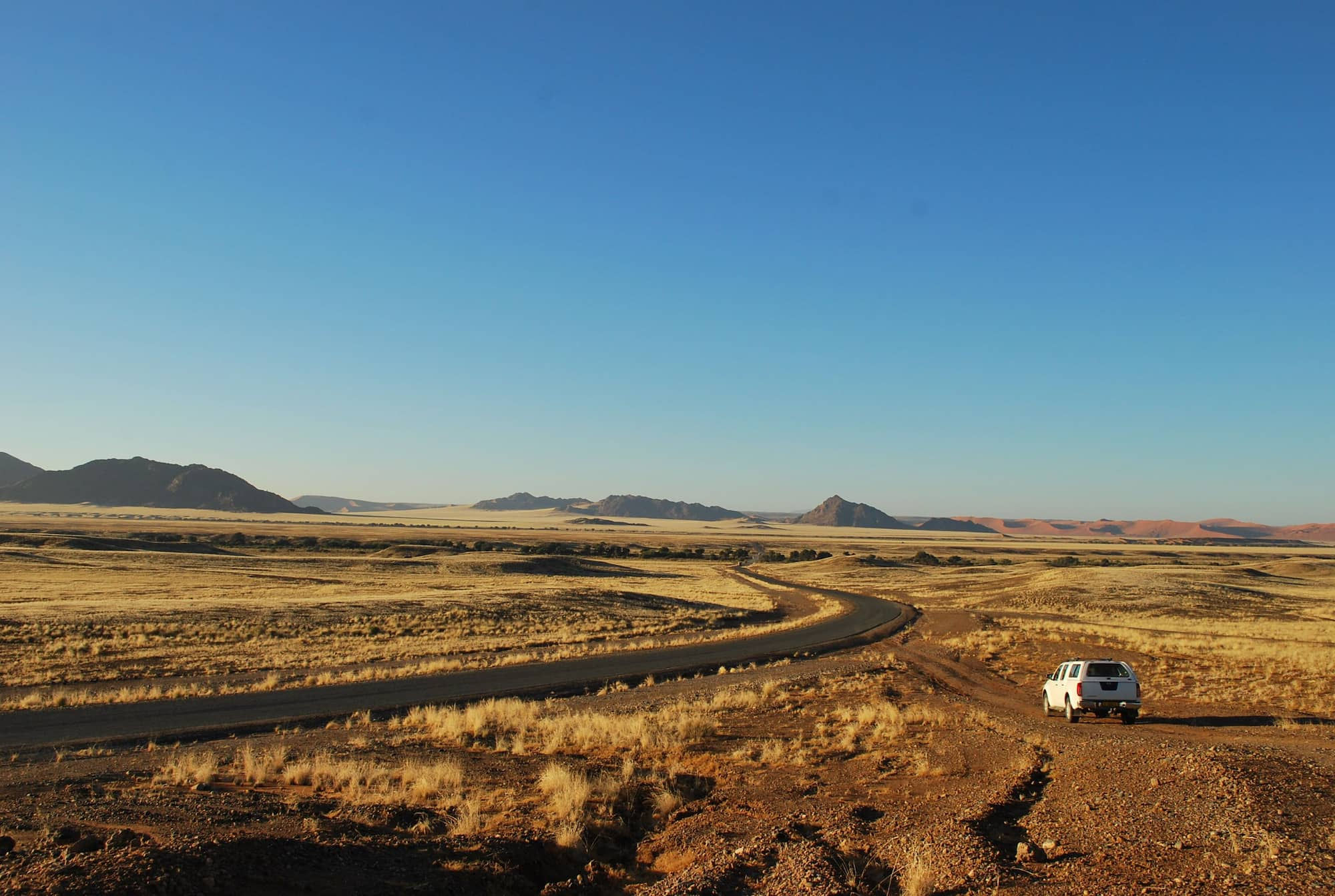
Discover the beauty of Namibia at your own pace with a self-drive safari—an unforgettable, laid-back adventure.
Absolutely! Namibia is one of Africa's safest countries, and especially suited to self-driving holidays, thanks to its well-maintained roads, low crime rates, and reliable infrastructure. The main highways are paved and easy to navigate, while gravel roads—though a bit more challenging—are still manageable with a proper vehicle.
A 4x4 is recommended, especially if you’re venturing into more remote areas like Damaraland or the Namib Desert. Just remember that wildlife and long distances can pose risks, so drive cautiously, especially at dawn and dusk. Planning ahead, carrying extra fuel (and snacks), and having a good map or GPS are essential.
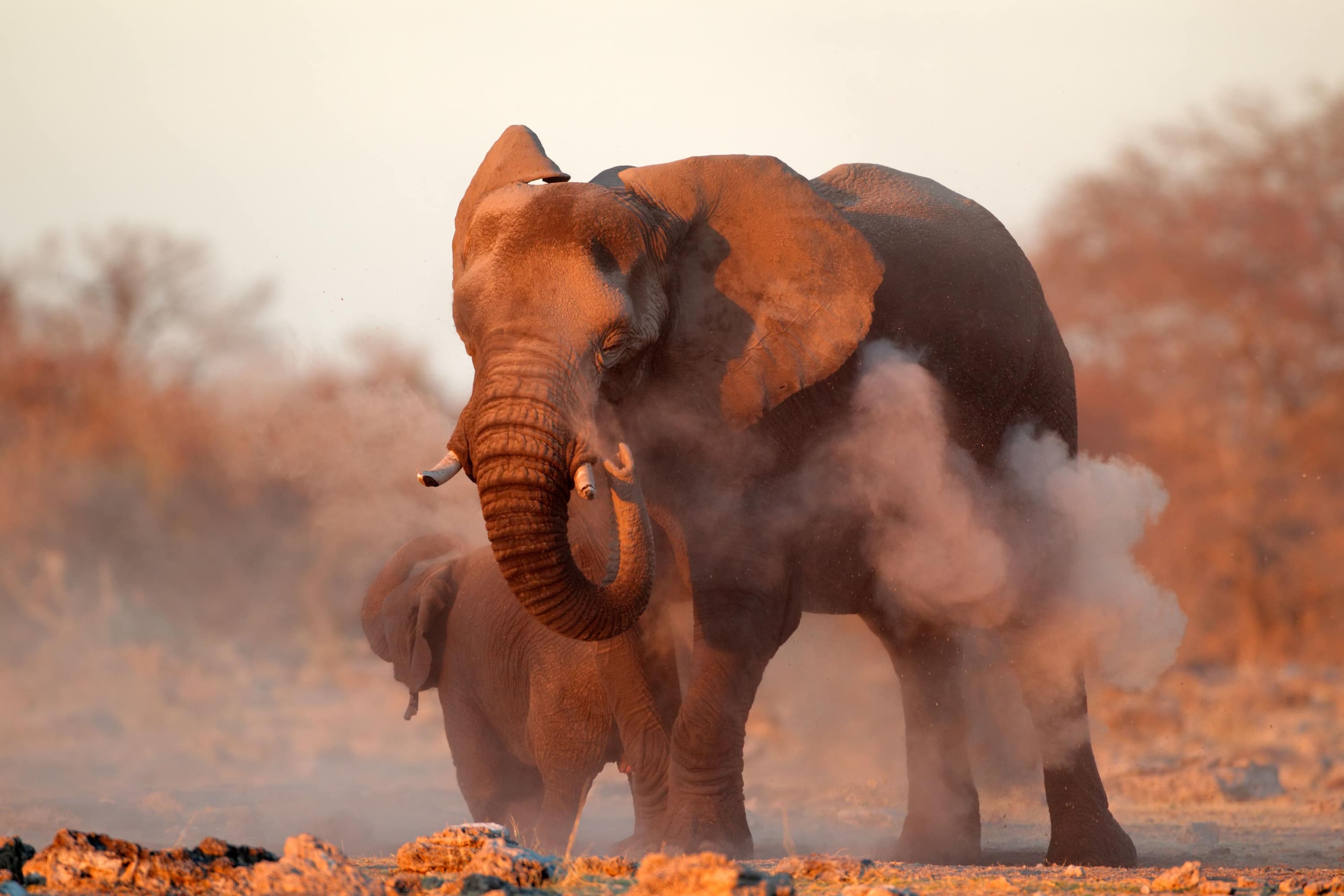
Up close with Africa’s gentle giants — a moment to remember on our self-drive through Etosha.
There’s something special about driving yourself through Namibia. You’re not tied to strict schedules, so you can linger longer at a waterhole in Etosha National Park or take an unplanned detour to a viewpoint. Plus, the freedom to stop whenever you like means you’ll capture those spontaneous moments—like spotting a lone oryx silhouetted against the dunes or stumbling upon a roadside craft market. Self-driving also makes it easier to explore lesser-known areas that tours might skip, giving you a more personal and immersive experience.
While you can see some highlights in a week, 10 to 16 days is ideal for a more relaxed and immersive journey. Ten days is enough to explore southern Namibia, including Swakopmund, the Kalahari Desert, Fish River Canyon, and the Namib Desert's towering dunes.
For a more comprehensive adventure, though, 16 days allow you to travel further north, creating an 8-shaped circuit. Those few extra days mean you can explore the northern half, see Damaraland's desert elephants and the Skeleton Coast's dramatic landscapes, meet the Himba people, and enjoy a spectacular safari in Etosha National Park.
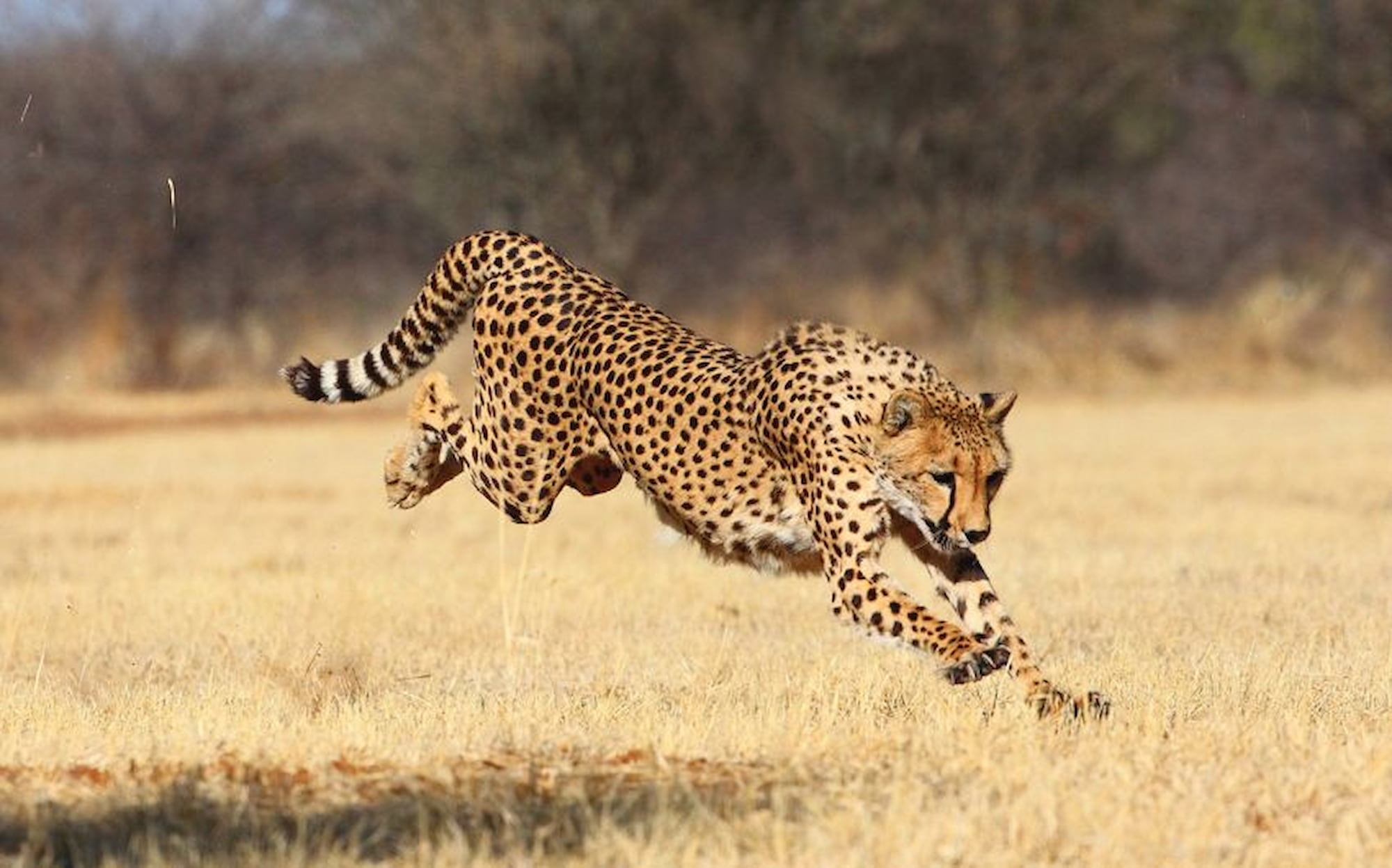
Witnessed a cheetah in full pursuit— pure adrenaline in the wilds of Namibia.
The best time of year for a self-drive holiday in Namibia is during the dry season, from May to October. This is when wildlife congregates around waterholes, making for excellent game viewing. The weather is pleasantly cool, with warm days and chilly nights. July to September is particularly popular for safaris in Etosha. May and June offer great weather with less tourist traffic if you prefer quieter months.
The desert areas of Namib and the Kalahari are pretty comfortable all year round, and even the wet season offers its own enticements, especially for avid birdwatchers.
The rains transform the landscape into a lush haven for many migratory birds, like the red-breasted swallow, red-billed quelea, yellow-billed hornbill, and the small but mighty Amur falcon, among many others. If you're looking for a top birdwatching spot, head to Mahango Game Park in Bwabwata National Park. Home to over 300 bird species, it's the perfect destination for the wet season.
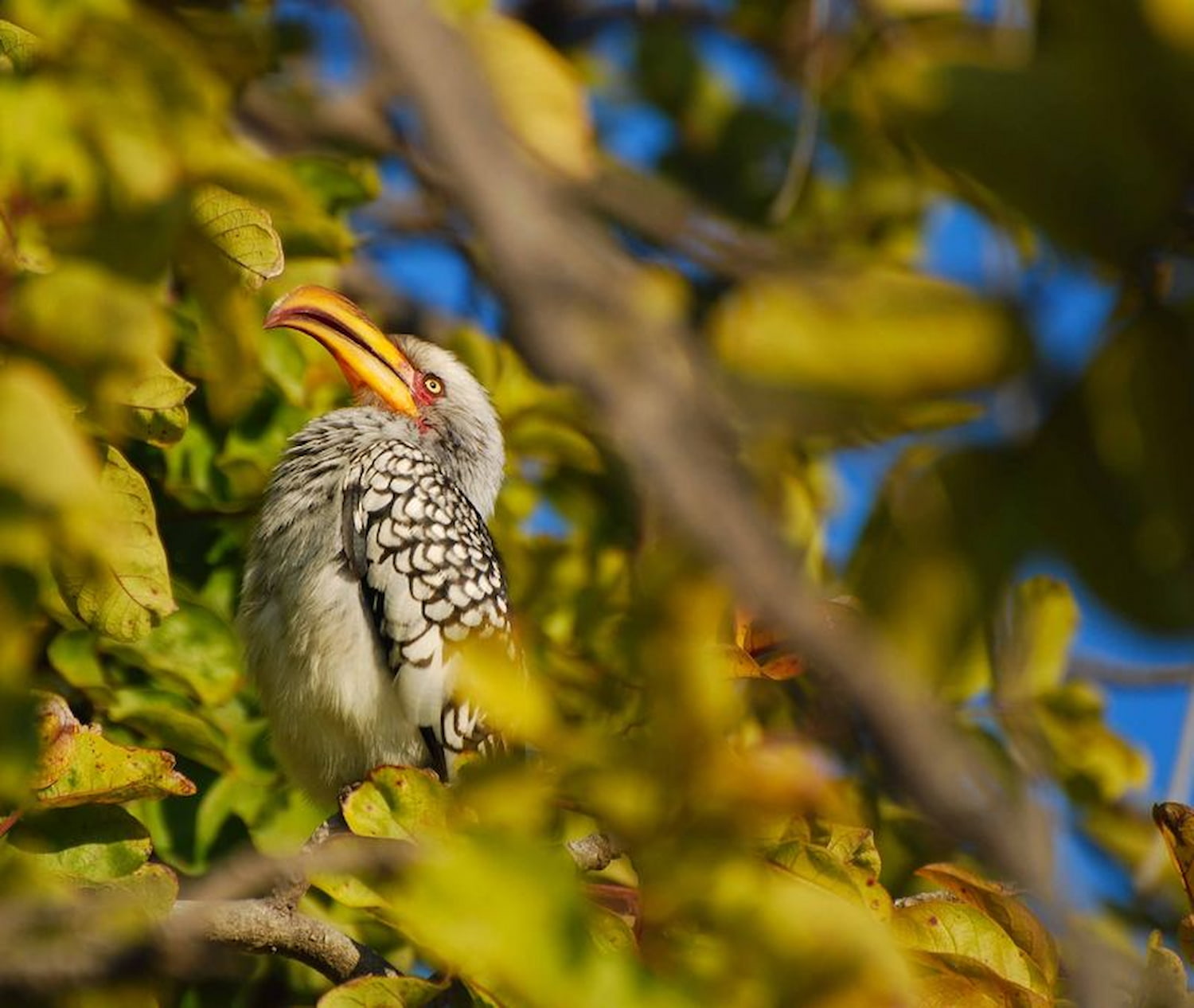
Experience Namibia’s wildlife up close — even the smallest encounters leave lasting memories.
Now, let's look at some of Namibia's must-see highlights.
Known for their iconic red dunes, Sossusvlei and Dead Vlei are breathtaking at sunrise when the colours shift from deep orange to soft gold. The white clay pan of Dead Vlei, dotted with ancient, dead camel thorn trees, creates a stark yet stunning contrast against the dunes.
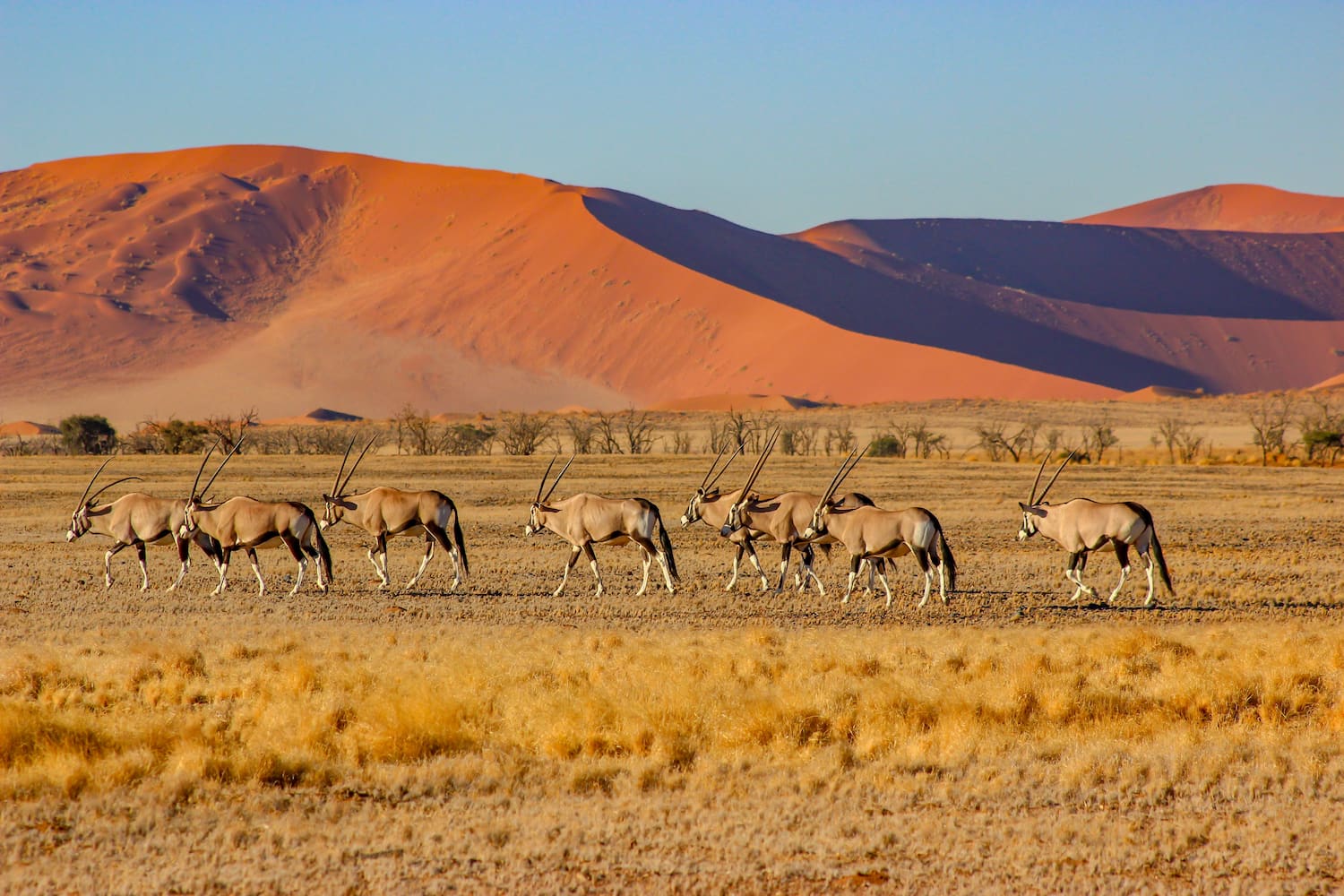
A majestic oryx roams the dunes of Sossusvlei, blending seamlessly with Namibia's iconic desert landscape.
Carved over millions of years, Fish River Canyon is the world’s second-largest canyon and a paradise for hikers and nature lovers. The rugged cliffs and winding river below offer spectacular
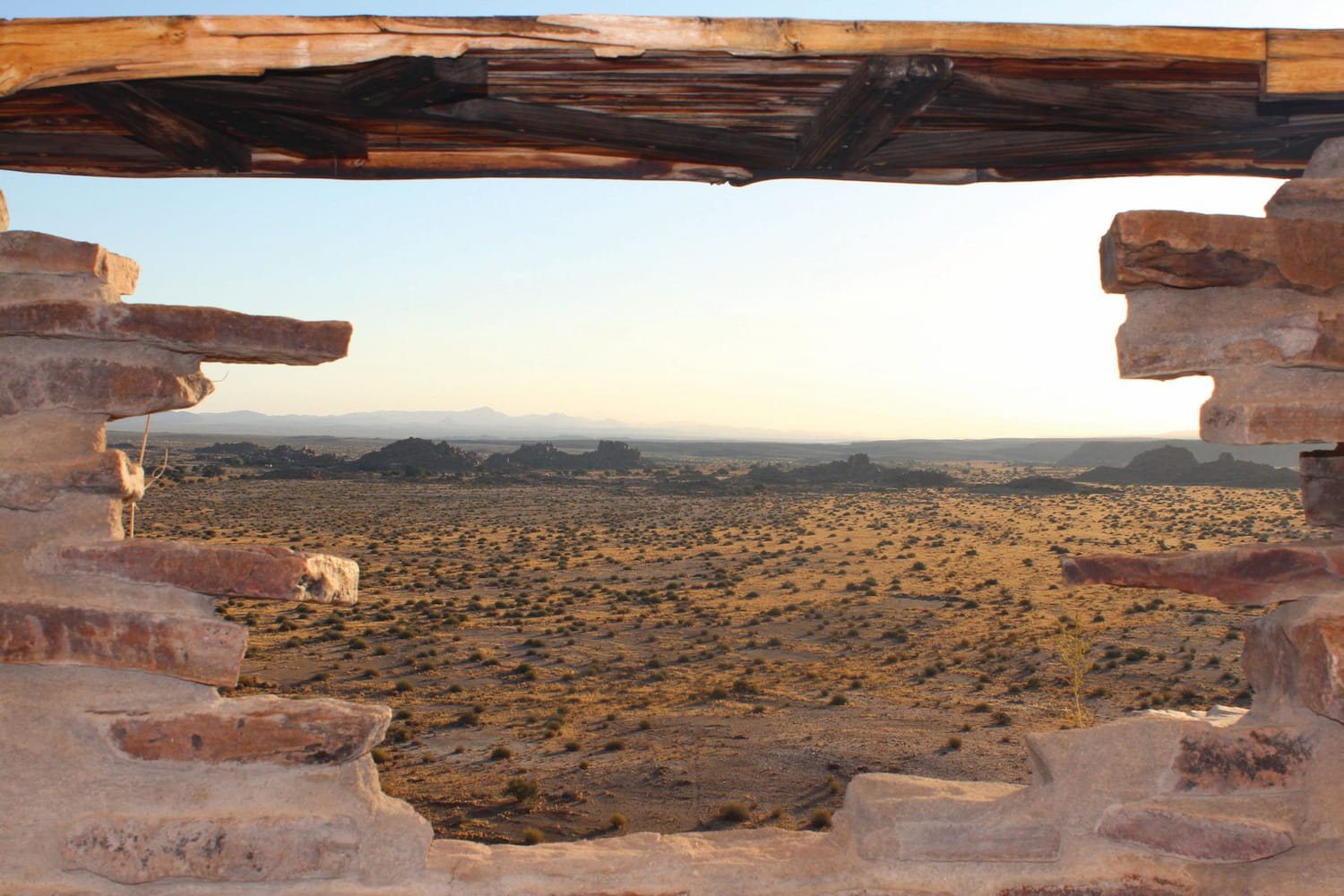
The grandeur of Namibia, etched in stone.
This coastal town blends German colonial architecture with adventure activities. Stroll through streets lined with pastel-coloured buildings, then head out for sandboarding, quad biking, or a scenic flight over the Skeleton Coast.
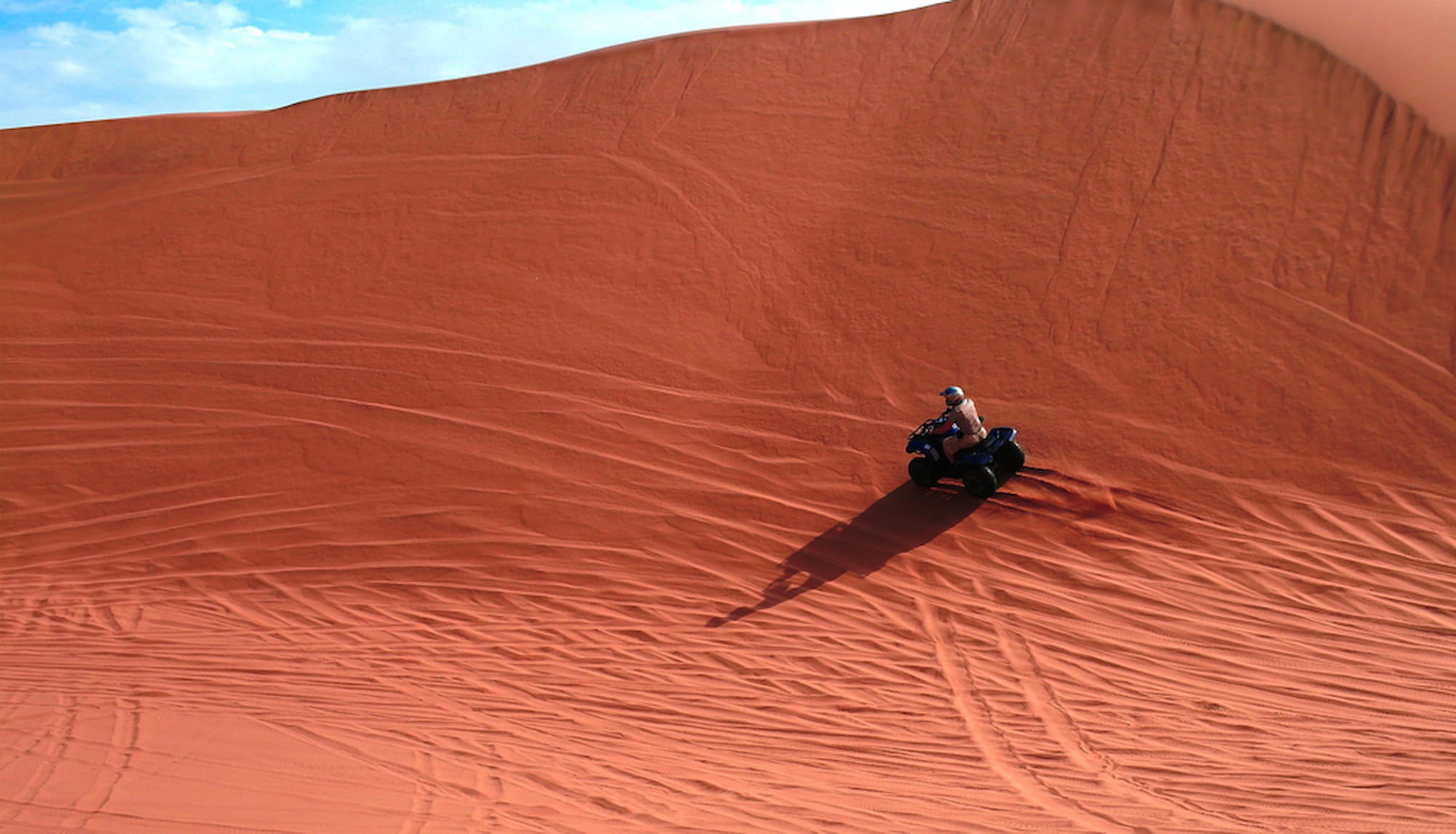
Ride the dunes, catch the breeze, discover Swakopmund.
One of the world's oldest deserts, Namib's landscapes shift from rolling red dunes to rocky plains, home to wildlife like oryx and zebras. Its vast, untouched beauty is both humbling and utterly captivating.
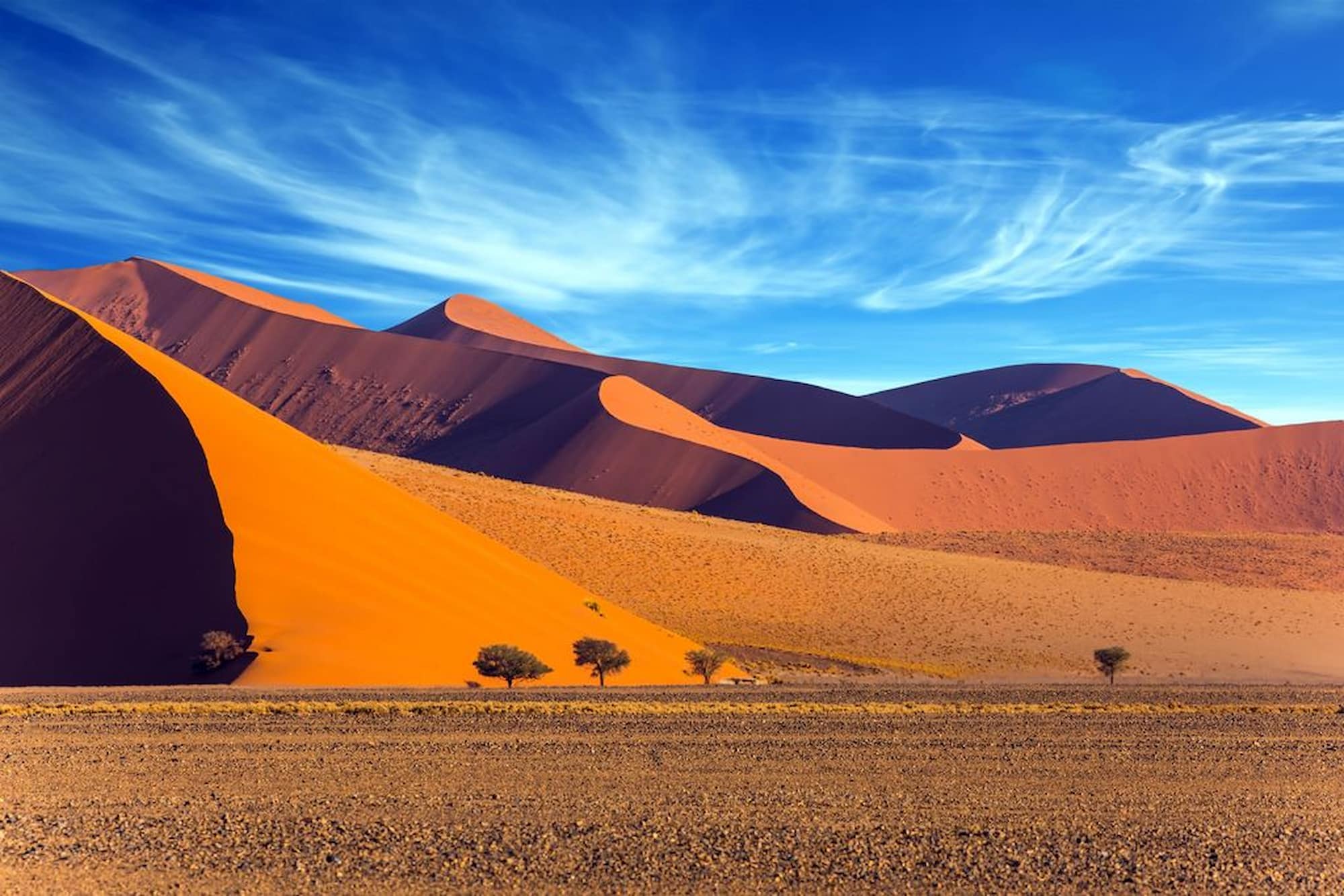
Endless sands. Endless adventure.
Kolmanskop was once a busy diamond mining town, but now it is a beautiful, eerie place where sand has filled the empty buildings. It is almost inconceivable that this was one one of the richest towns in the world.
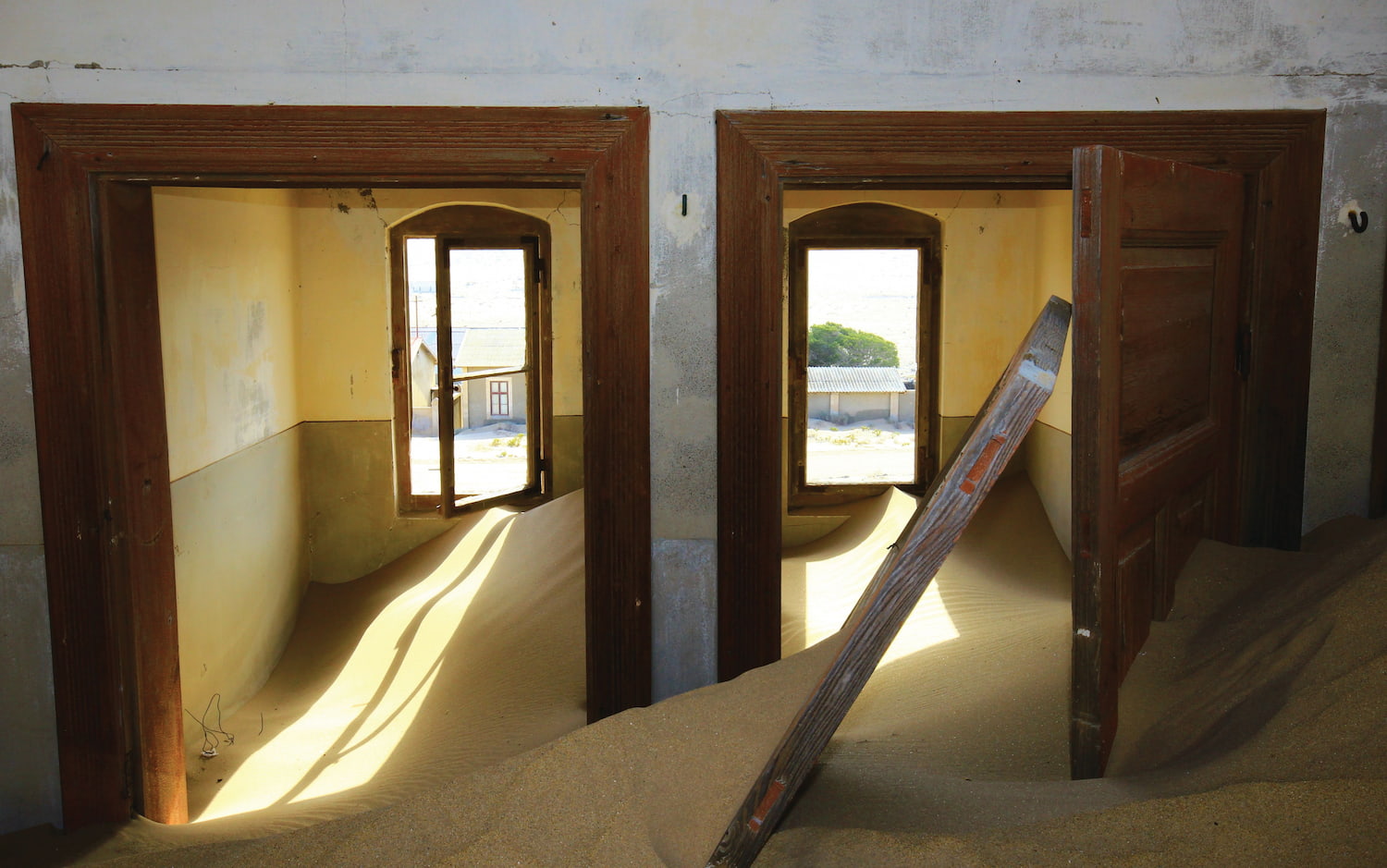
Abandoned but unforgettable: Kolmanskop, a town lost in time.
Etosha is one of Africa’s premier wildlife destinations, famous for its vast salt pan and abundance of wildlife. Watch elephants, lions, and giraffes gather at waterholes, especially during the dry season when wildlife viewing is at its best.
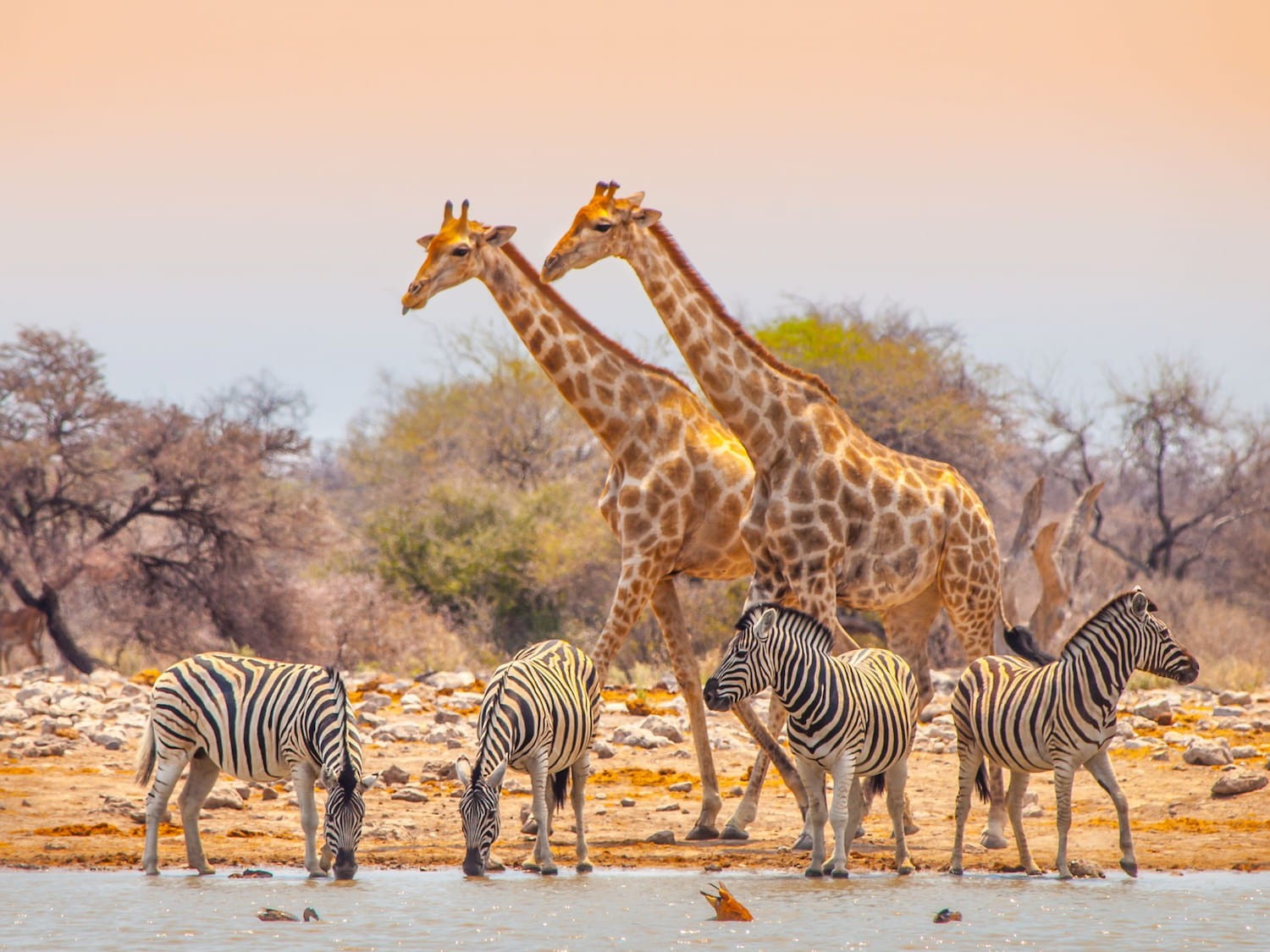
Golden plains, majestic creatures — the soul of Etosha.
This rugged region is known for its striking landscapes and ancient rock engravings at Twyfelfontein, a UNESCO World Heritage Site. Keep an eye out for desert-adapted elephants and rhinos roaming the rocky terrain.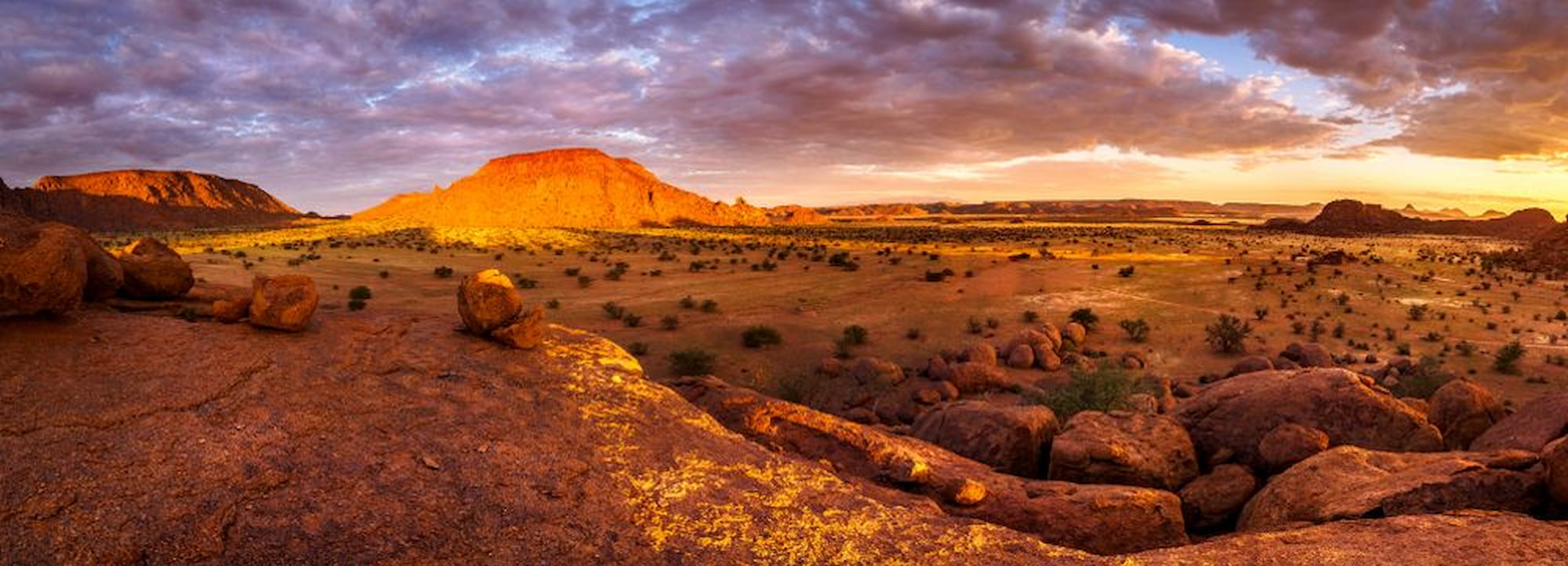
Home to desert-adapted elephants and timeless landscapes — Damaraland.
Famous for its rolling red dunes and golden grasslands, the Kalahari is home to diverse wildlife like springbok, oryx, and meerkats. The vast, open spaces and dramatic sunsets create a sense of absolute peace and solitude.
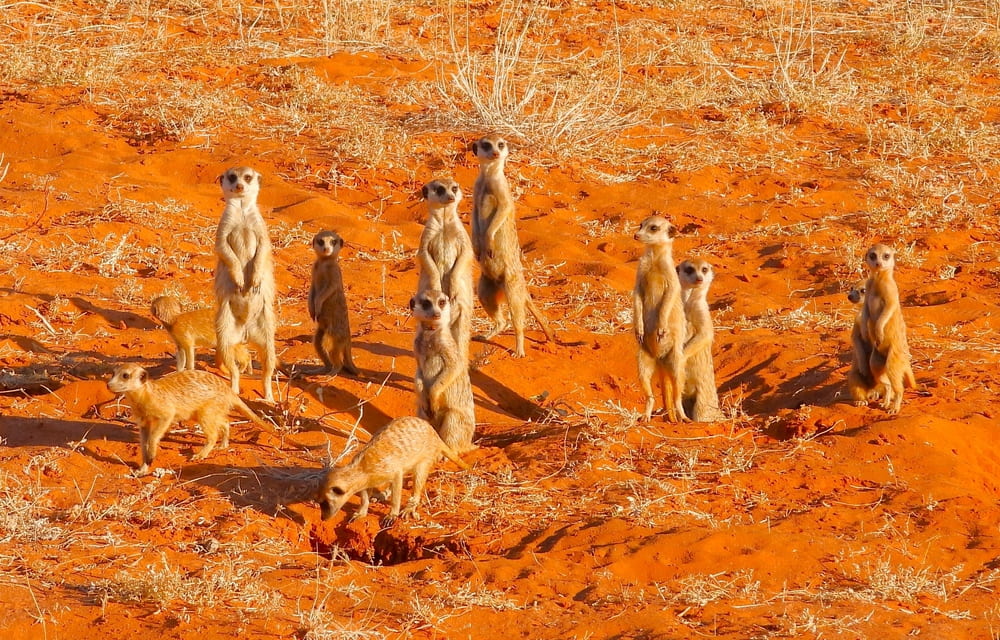
The vigilant meerkats of the Kalahari Desert.
The Himba communities in Kaokoland, one of Namibia's most iconic tribes, enjoy a semi-nomadic lifestyle, the way they have for eons. Visiting them is a unique and incredibly fascinating cultural experience.
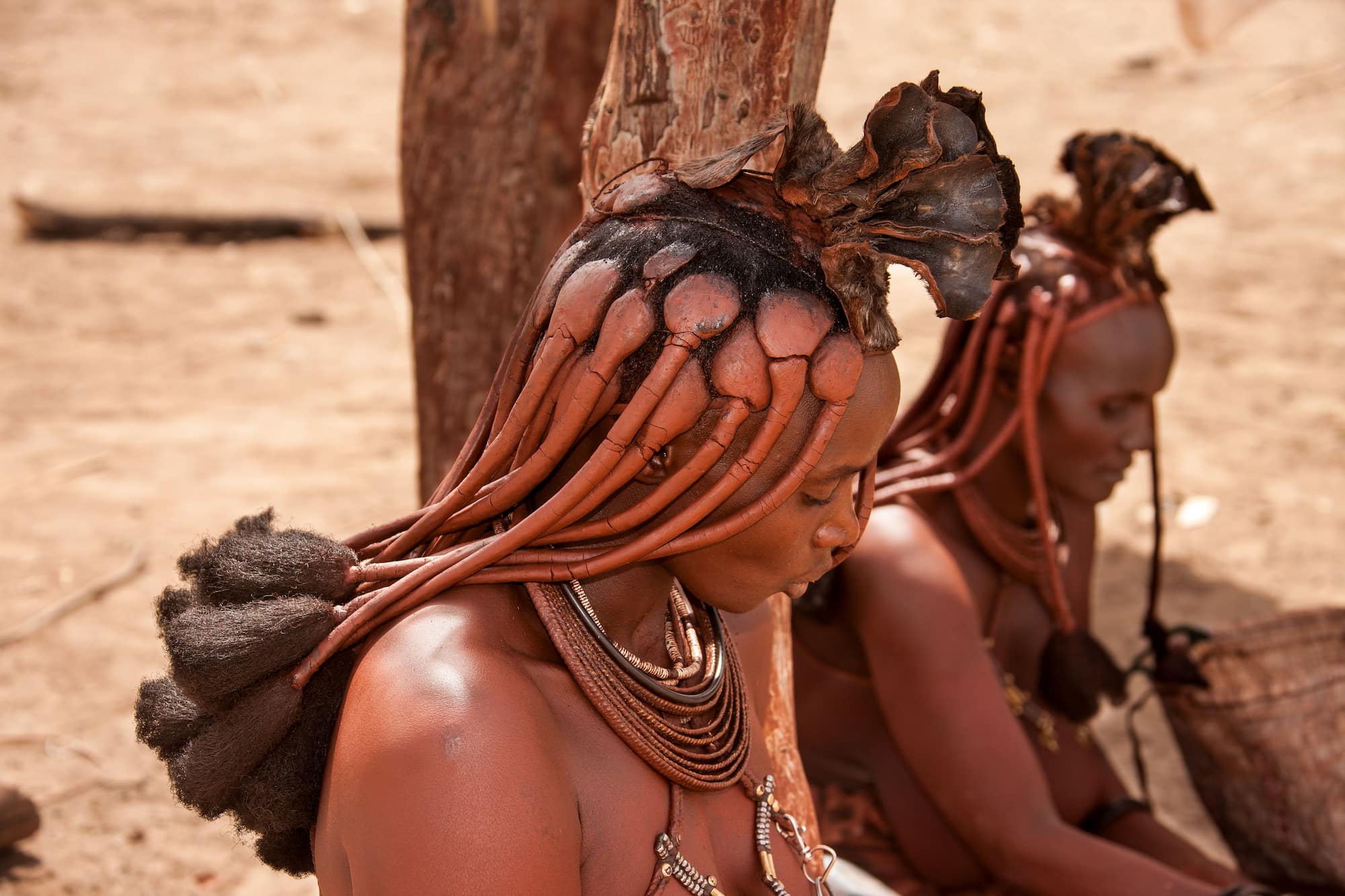
Heritage worn with pride — the Himba way.
Known for its shipwrecks and harsh landscapes, the Skeleton Coast is both eerie and beautiful. The combination of fog, roaring Atlantic waves, and endless dunes creates a jaw-dropping scene, whether from the road or the air.
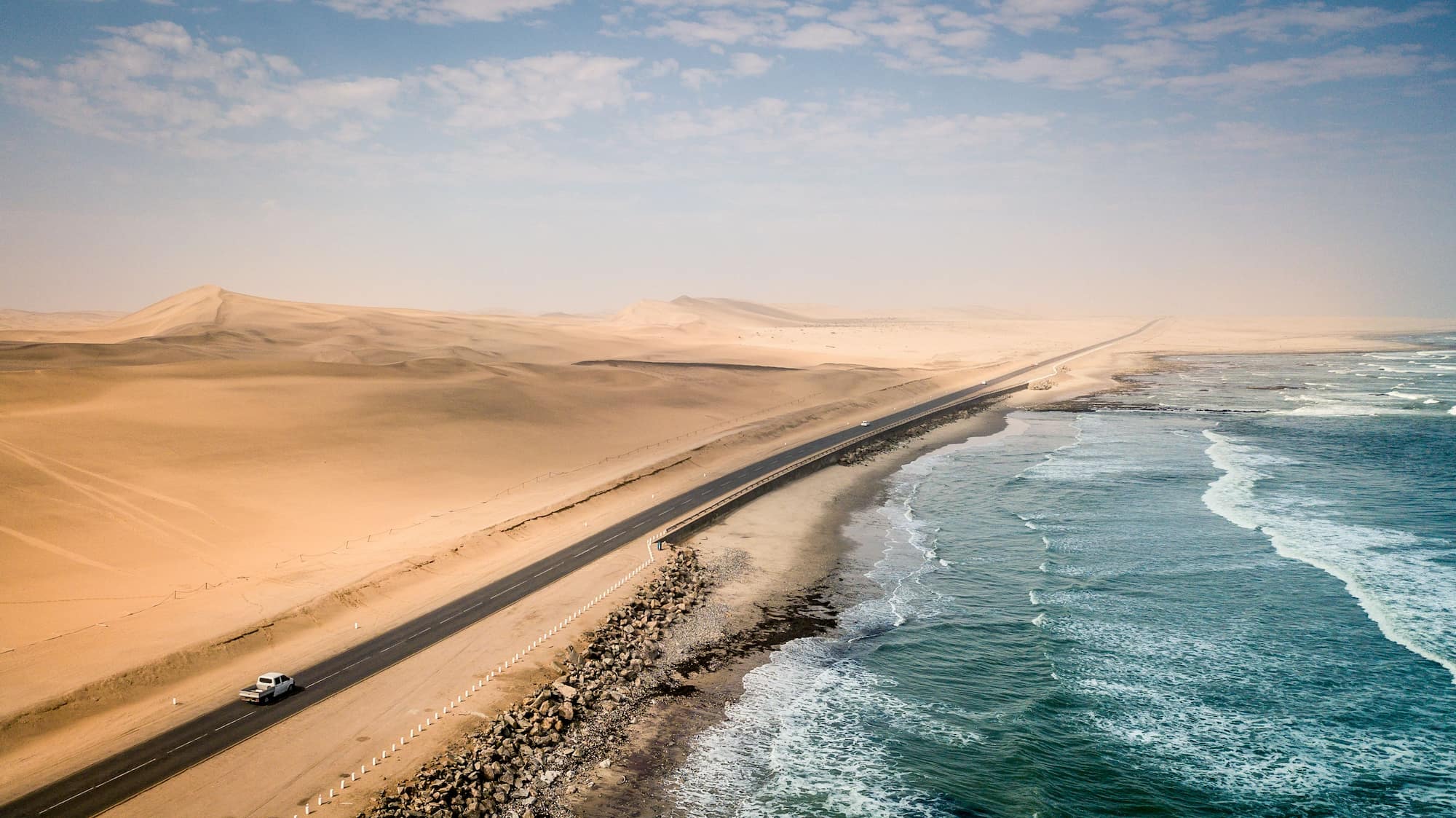
Once called the ‘Gates of Hell,’ the Skeleton Coast endures in stark beauty.
Here’s an overview of where each highlight is located. Windhoek is ideally located right in the heart of the country. This is the best entry & exit point for self-driving holidays and safaris in Namibia.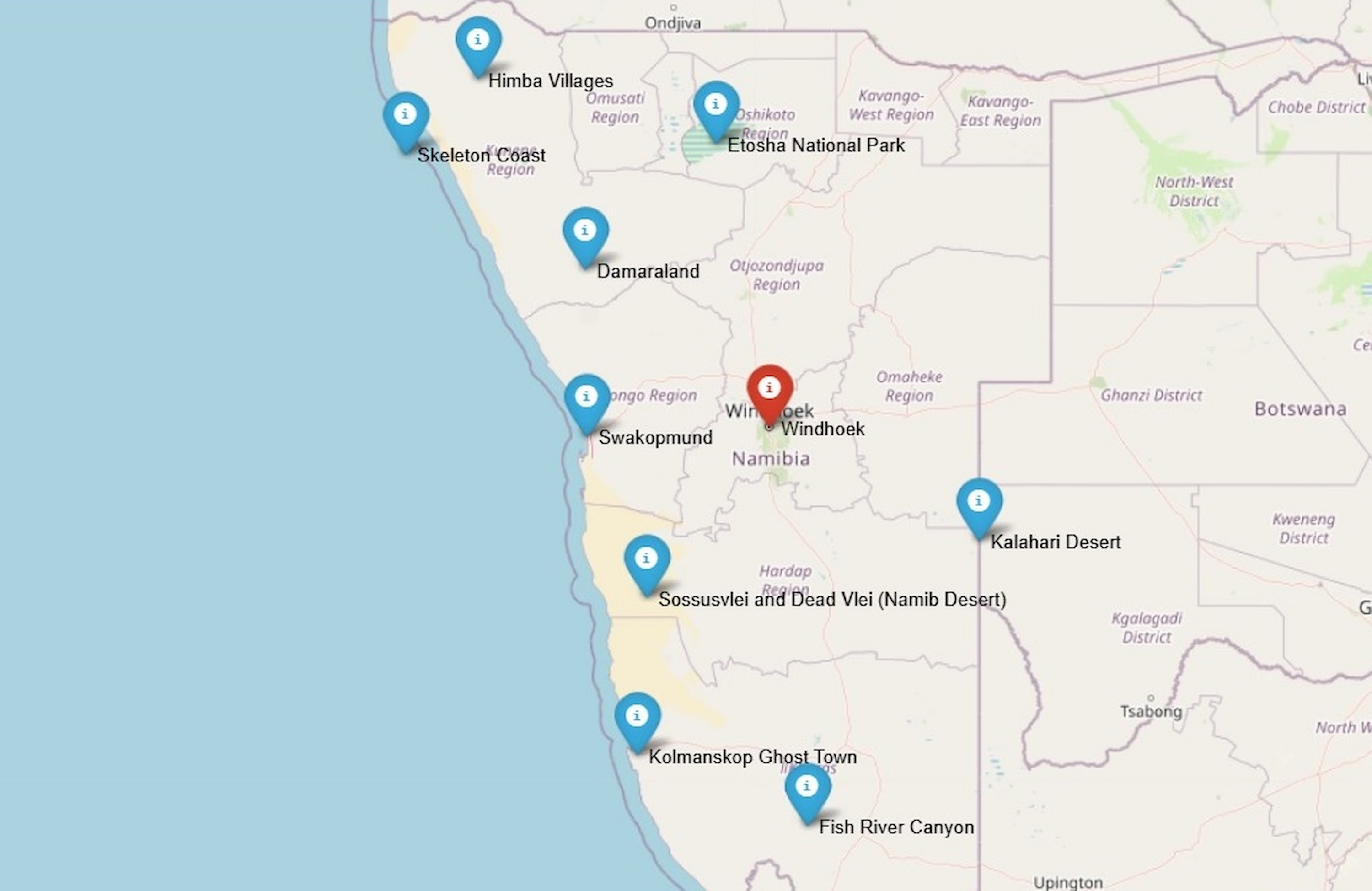
While it's possible to stick to paved roads in a regular car, a 4x4 is highly recommended—especially if you plan to explore gravel roads or remote areas.
Not at all. Most main roads are well-signposted, and GPS works reliably. However, distances between towns can be long, so plan your fuel stops carefully.
Yes! One of the joys of self-driving in Namibia is that you can spot wildlife from the comfort of your car. In Etosha, for example, it’s very common to see elephants, giraffes, and lions near the road.
The country’s most touristed hubs boast hotels, Bed & Breakfasts, and some of Africa’s most delightful safari lodges.
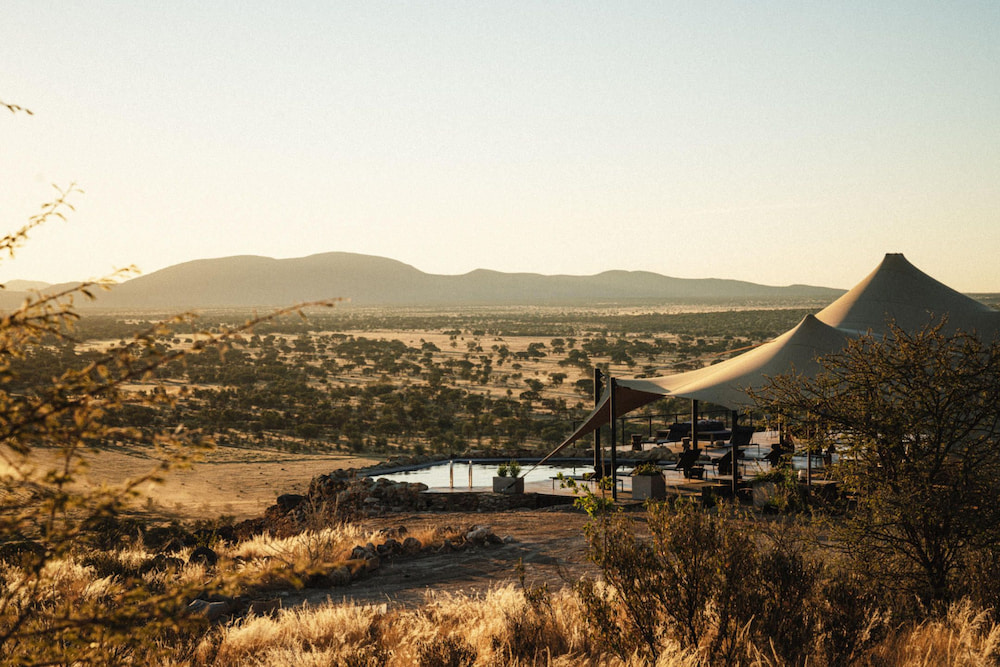
The spectacular Habitas Lodge, in Windhoek.
Here are two popular routes from Viva Expeditions that highlight the beauty, wildlife, and culture of Namibia:
Start in Windhoek, where you’ll pick up your car and get a quick briefing. From there, head south to the Kalahari Desert, where red dunes and grass plains serve as a stunning backdrop. Next, visit Fish River Canyon—the world's second-largest canyon—before continuing to Lüderitz, a coastal town with German colonial architecture. Don't miss Kolmanskop, a ghost town partially buried in the sand.
Journey through the Namib Desert to Sossusvlei, home to some of the world's tallest dunes. Climbing Dune 45 at sunrise is a must—the colours are surreal. Continue to Swakopmund, where you can try sandboarding or take a sightseeing flight over the Skeleton Coast. Finally, return to Windhoek, driving through the scenic Namib Naukluft Park.
> See how we plan the Magical Southern Namibia Itinerary
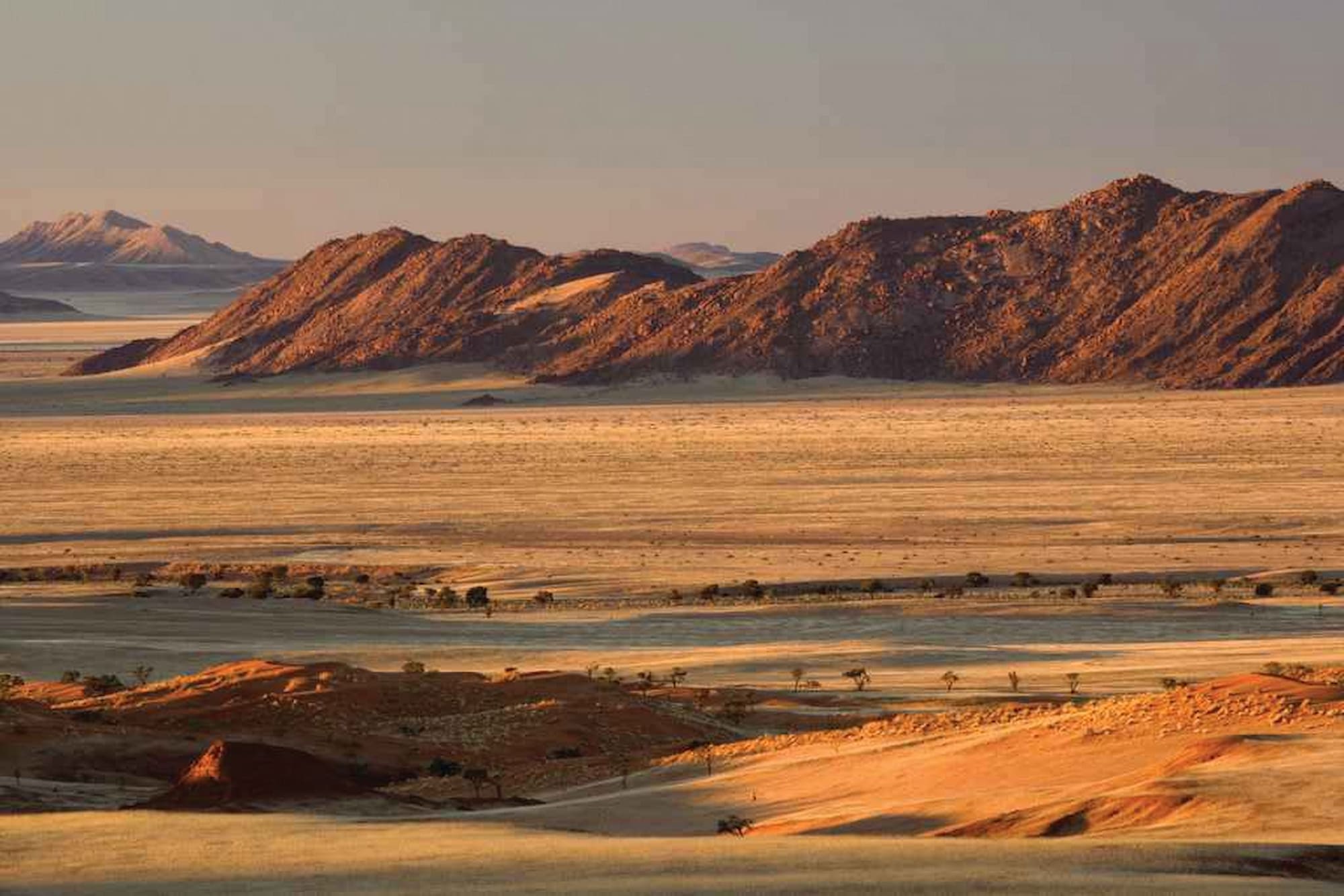
Adventure across breathtaking landscapes of Namibia.
With a few extra days up your sleeve, you can explore further and in more depth. Kick off in Windhoek, then head to Swakopmund for coastal adventures and German colonial charm. Next, explore Damaraland, known for its ancient rock engravings and desert elephants. Meet the Himba people in Khowarib and experience traditional Ovambo life in Ovamboland.
Continue to Etosha National Park, where game drives reward you with sightings of elephants, lions, and zebras against the spectacular Etosha Pan landscape. After wildlife spotting, visit Grootfontein and learn about the San people's ancient traditions in Bushmanland. Wrap up your journey with a stay near Windhoek, surrounded by the bush savannah.
> See how we plan the more comprehensive Cultural Namibia Itinerary
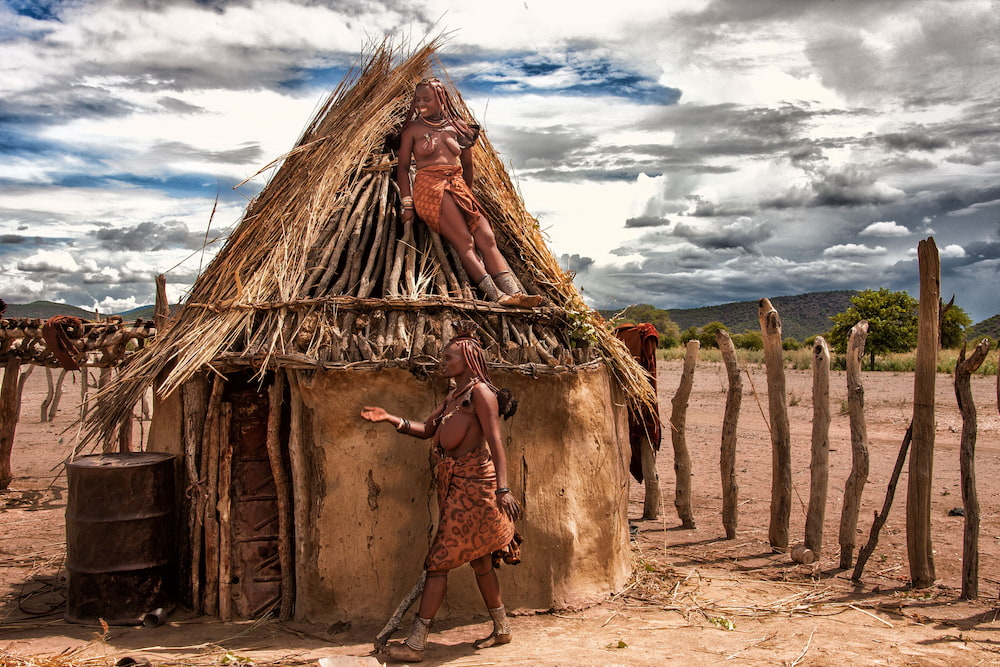
Preserving culture through craft — Namibia’s traditional houses.
Booking a self-drive holiday through Viva Expeditions comes with several perks. You get a fully insured 4x4 vehicle, detailed maps, and a comprehensive itinerary that ensures you don't miss any must-see spots. Your accommodation is pre-booked, so there's no stress about finding a place to stay after a long day of driving (undoubtedly the biggest stress for independent travellers.) We take care of all your permits so you can travel with peace of mind and offer 24/7 support, so local help is always there if you need it.
At Viva Expeditions, we love independent self-driving trips just like you do. But we think having a trusted company to help plan your holiday and provide 24/7 support makes things even better. The sheer joy of travelling alone is intensified when you know there’s an experienced team who’s got your back.
To learn more about Namibia, alternative self-drive routes, customisable itineraries, luxury flying safaris, and fantastic small-group tours, contact Viva's Destination Specialists today!
Laura PattaraLaura Pattara has guided overland trips across Africa and now focuses her writing on the continent for Viva Expeditions. She once camped beneath a marula tree that an elephant tore apart during the night, yet somehow she still sleeps best in a tent. But make it glam! From sunrise balloon rides over the Serengeti to following the rhythms of wildlife migrations, Laura brings the wild heart of Africa to life with warmth, depth, and the occasional muddy boot. |

Explore the entirety of southern Namibia on this epic road trip, from the Kalahari Desert to the second-largest canyon on Earth.
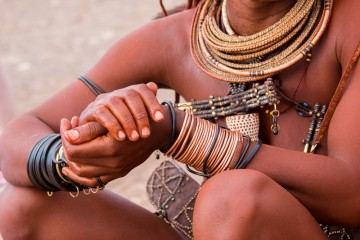
Be immersed in authentic Namibia and explore vast landscapes, diverse cultures, and abundant wildlife on this self-drive adventure.
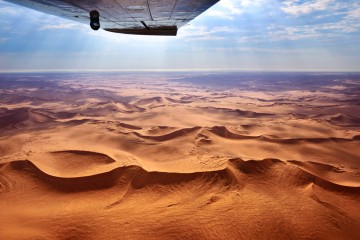
Small Group Tours: Embark on an escorted small group tour to discover the stunning continents of South America, Africa, Antarctica and New Zealand. A group tour gives you the opportunity to explore in a fun and exciting environment surrounded by like-minded travellers.
Experience Namibia’s entirety from an Eagles perspective. Visit the surreal dunes at Sossusvlei and Dead Vlei. Explore Etosha National Park.